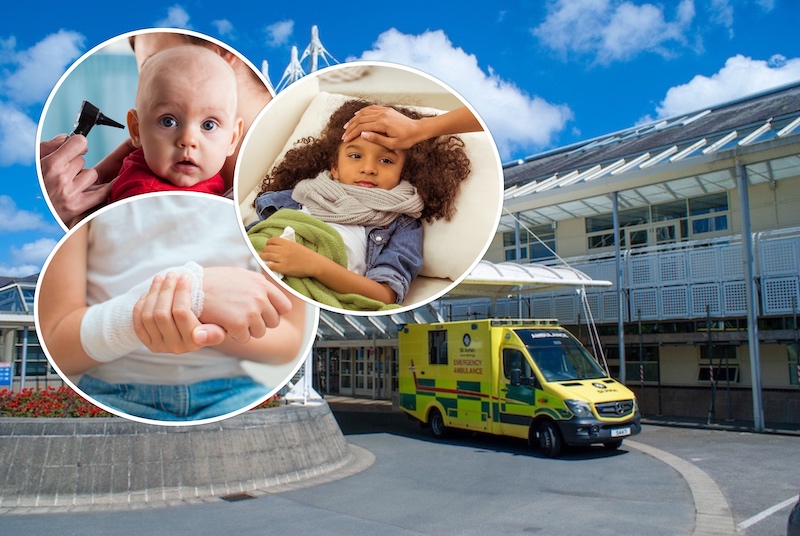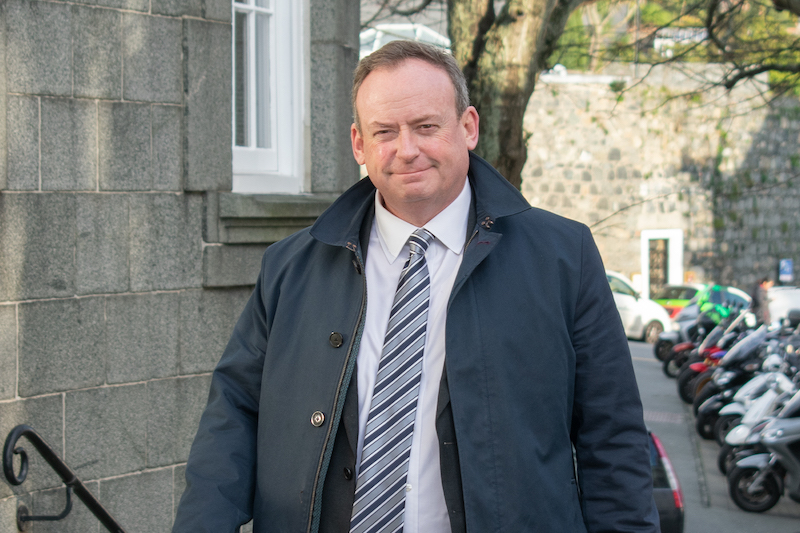

Policy & Resources has said it can't fully support proposals to cut the cost of children's healthcare, because of a lack of public consultation and evidence-based planning in the policy letter.
The plans have been put forward jointly by Employment & Social Security, Health & Social Care and Education, Sport & Culture, for debate at next week's meeting.
They ask the States to invest nearly £2million in children's services by subsidising young people's healthcare appointments and pumping more money into education specifically for enrichment and cultural activities.
If approved, the proposals would see the cost of a child's GP appointment and the cost of an A&E visit drop to £25, while all children would be offered a free annual dental checkup.
In addition, around £150,000 would be reallocated to eduction, dental health lessons in schools would be strengthened and there would be a supervised tooth-brushing programme for children in preschools.

Pictured: A&E trips and GP appointments for children will be subsidised under the new proposals, if approved.
The committees' plan to fully meet the cost of the changes by getting rid of the weekly family allowance for households with a gross annual income of £120,000 or more, and by stopping the allowance for others when the child reaches 18 years of age.
However, in a letter of comment, Vice President of P&R, Deputy Lyndon Trott, said the plans hadn't been fully thought through.
"It appears that the committees concerned have identified a number of initiatives which they consider to be high priority and then calculated the necessary adjustment to the family allowance system in order to fund these initiatives," he wrote. "There has not been public consultation on the proposals.
"Whilst the measures proposed undoubtedly have merit and will be popular, the policy letter does not define the overall policy objectives that are being pursued and what the desired outcomes and benefits are. In addition, there is no detail of alternative measures considered within the broad sphere of children's services and their benefits.
"Therefore, it will not be possible to measure whether these changes, if approved, achieve desired outcomes and deliver net overall benefits, or whether there are other services which would deliver better comparative outcomes."

Pictured: Deputy Lyndon Trott wrote a letter of comment on behalf of Policy & Resources.
Although P&R supports the general principle of replacing the allowance with targeted benefits, Deputy Trott said there was a lot more to think about before the committee can come to a decision on whether to support the proposals.
"[The committee] questions whether using only the blunt instruments of an income ceiling and an age cut-off are the correct way to target benefits," he went on. "For example, reducing the cost of primary care appointments and Emergency Department visits would not benefit those in relative poverty who are in receipt of income support as these services are already funded as part of the income support benefit package.
"The policy letter does not include an assessment of the net overall impact of the proposals on a range of household incomes.
"Furthermore, members are particularly concerned about the potential impact on families which include young people between 18 and 19-years-old who are in full time education and living in a low income household. The removal of the family allowance from the household income could jeopardise those individuals' continuation in full time education."
As a result, Deputy Trott said P&R "has not been able to form an evidence-based view as to whether the proposals achieve government objectives".
If the proposals are approved at next week's States meeting, there will be a one year delay before the changes come into effect.
To read them in full, click HERE.
Comments
Comments on this story express the views of the commentator only, not Bailiwick Publishing. We are unable to guarantee the accuracy of any of those comments.